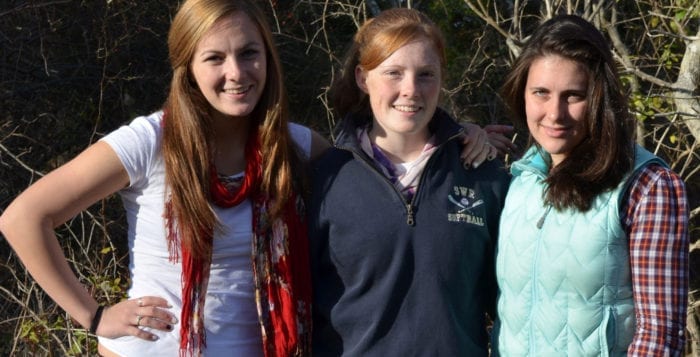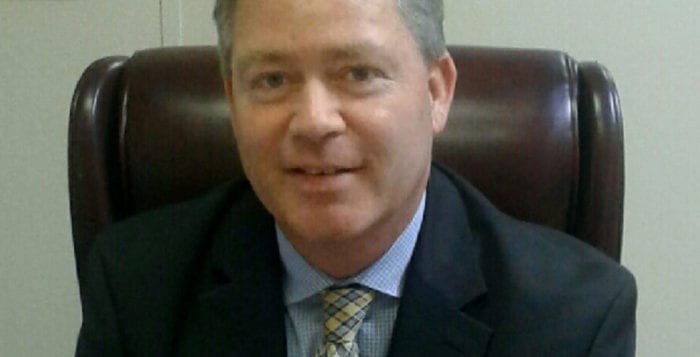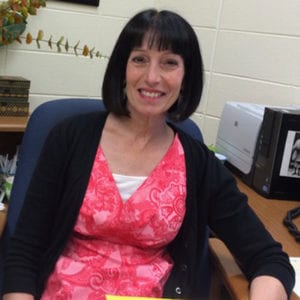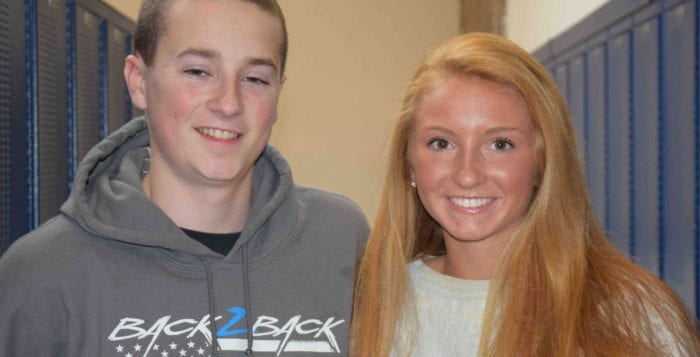By Kevin Redding
At Shoreham-Wading River High School, siblings share more than genes.
When Advanced Placement student and track star Anthony Peraza graduated at the top of his class, he wasn’t just following in the footsteps of his older brother, Matthew, who was named salutatorian in 2014.
The soon-to-be Cornell University engineering student was also carrying on an ongoing tradition in the district, which, since 2006, has seen a total of five sets of siblings graduate in the top percent of their classes, as valedictorian or salutatorian.
Those on the list, which now includes the Perazas, are William Throwe, named valedictorian in 2006, and his sister, Emily, salutatorian in 2009; Katelyn Gostic, valedictorian of her graduating class in 2009, whose drive to succeed from an early age set the bar for her sisters, Michelle, salutatorian in 2011, and Cari, valedictorian in 2013; Iris Yu, 2010 salutatorian, and her sister, Spring, the 2015 valedictorian; and Maxwell Maritato, who was named valedictorian in 2014, two years before his brother, Nicholas, who gave his salutatorian speech in 2016.
“For any student to become a valedictorian is an amazing achievement, but to have several sets of siblings be at the top of their classes really is a testament to the families,” Shoreham-Wading River High School Principal Dan Holtzman said in an email.
“I think Anthony saw the adulation his brothers received and was like, ‘oh, I’m going to be like that.’”
— Rosemary Peraza
In the Peraza household, education was always priority No. 1.
Raised by two high school chemistry teachers, Anthony and his older brothers — Matthew, 20, entering his senior year at Cornell University this fall, and Michael, 24, a Cornell graduate working for the county as an environmental engineer — were taught the importance of structure and academics from the moment they could breathe, according to their father, Tony, a retired teacher and coach at Longwood Senior High School.
“When Anthony was about four, my wife and I used to run with him while [also] working on vocabulary and times tables,” his father said, laughing that he was the “drill sergeant” parent while his wife was the more affectionate one. “He knew what was expected of him as the youngest.”
Anthony’s mother Rosemary, a teacher at West Babylon High School, said the brothers are close, support one another and each have a strong work ethic.
“I think Anthony saw the adulation his brothers received and was like, ‘oh, I’m going to be like that,’” she said.
But while Matthew and Michael had to be pushed sometimes to get in gear, their father said that was never needed for Anthony.
“He was self-motivated — he would get up on time, would get most of his work done before he got home, [and] always gave us perfect report cards since grammar school, A-plus’s all the way down,” Tony Peraza said. “He just seemed to get it.”
Aside from running cross country and playing alto sax in the jazz band throughout high school, Anthony Peraza took several AP classes, in physics, chemistry, calculus, music theory, U.S. history, literature and even scored a high grade on an AP biology exam his freshman year even though he did not take the class.
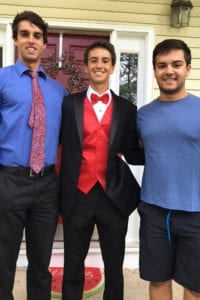
“My brother’s grades set pretty high standards, so I felt I needed to do that too, and not let anyone down,” he said. “Early on, it was drilled into my brain ‘do homework first, get it done.’”
On his younger brother’s achievements, Matthew Peraza said, “Anthony really got what he deserved. He’s worked hard and he had it figured out. I’m really proud.”
That same inherent motivation also drove the Gostic sisters in high school, where each of them excelled as three-season athletes, AP students and extracurricular leaders.
But as far as sisterly competition goes, Katelyn Gostic, 26, who was student government president, said there wasn’t much of it.
“We all sort of just followed each other’s examples … all three of us were independently wired to work really hard and take pride in what we did,” said the oldest sister, a Princeton University graduate currently pursuing her doctorate at the University of California, Los Angeles. “We were all so busy.”
Michelle Gostic, 24, currently at the Delft University of Technology Dutch in the Netherlands to get her coastal engineering degree, said having Katelyn as an older sister served as inspiration.
“I always admired her and had it in my head that she was in another league, so I never compared myself to her,” Michelle said with a laugh. “Any motivation we had was definitely from within.”
She said both her parents — Rich Gostic, a science teacher at Hampton Bays High School, and Sherry Gostic, a physical therapy instructor at Stony Brook University — instilled in them an appreciation for learning without putting pressure on them.
“My husband and I are proud parents, but I have to say the girls were very much self-disciplined and driven, and we really did not play a big role in what they have accomplished,” their mother said. “It just turned out the way it did without anybody really trying to accomplish any kind of goal.”
As the youngest, Cari Gostic, 22, said working hard was a habit that I grew up with and modeled.
“I came home and did my work because that’s what Michelle and Katelyn did, and it has worked out really well for me,” said the recent Cornell graduate, who finished a semester early with a degree in atmospheric science.
“We all sort of just followed each other’s examples … all three of us were independently wired to work really hard and take pride in what we did.”
— Katelyn Gostic
When Maxwell Maritato, 20, was in seventh grade, the engineer-in-training at Rensselaer Polytechnic Institute recalls coming home and asked his mother Dorothy, “What would you say if I got an 85 on my science test?” to which she responded, “That wouldn’t be too bad.”
But when he told her that was the grade he got on his science test, she said, “Aw come on, you can do better than that.”
“I was like, ‘alright, let me see if I can do better,’ so it started out as wanting to please my parents a bit and it took off from there,” said Maritato, whose father, Peter, is the chair of the engineering department at Suffolk County Community College.
His mother said family always came first but stressed the importance of school.
“We encouraged them to get their work done before they played,” the physical therapy instructor said. “They were both bright from the get-go, and mature for their age. We consider ourselves lucky they were such good kids.”
By high school, Maxwell Maritato was student government president, a member of the National Honors Society, a volleyball and track standout and leagues above his classmates when it came to academics.
But younger brother Nicholas, currently pursuing a biomedical engineering degree at Johns Hopkins University, said he never felt pressured to achieve anything his brother did.
“It was definitely more inspiring to see the work he did pay off the way like it did, and it pushed me to strive to do my best,” he said, adding that any competition between the two was in good fun. “We were really good friends growing up.”
When Nicholas, an AP student, varsity volleyball and track athlete and Eagle Scout, was named salutatorian, his brother Maxwell had just a few words to say: “I saw it coming from miles away.”

